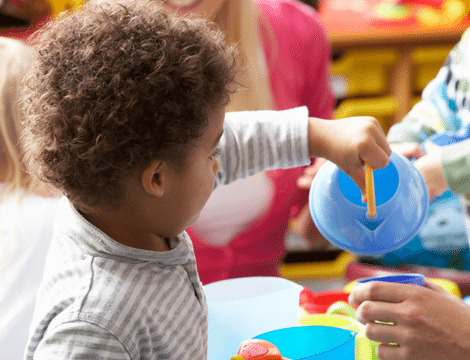The nursery school curriculum is designed to provide young children with a well-rounded foundation for future learning and development. Unlike traditional academic subjects, the nursery curriculum focuses on nurturing various aspects of early childhood growth through play-based and experiential learning. Understanding this curriculum helps parents and educators appreciate how nursery near Arabian Ranches Dubai support children’s development in a holistic manner.
Play-based learning:
At the heart of the nursery curriculum is play-based learning, which integrates educational goals with play activities. Play-based learning allows children to explore concepts and skills in a natural and engaging way. Through activities such as imaginative play, building with blocks, and sensory exploration, children develop cognitive, social, and emotional skills. This approach nurtures curiosity and creativity, making learning an enjoyable experience.
Social and emotional development:
The nursery curriculum places significant emphasis on social and emotional development. Children are encouraged to interact with their peers, which helps them learn essential social skills such as sharing, taking turn, and empathy. Teachers facilitate group activities and discussions that support emotional expression and regulation. By creating a nurturing environment, the curriculum helps children build self-confidence, resilience, and the ability to steer their emotions.
Language and literacy:
Language development is a core component of the nursery curriculum. Children are exposed to rich language experiences through storytelling, songs, rhymes, and conversations. These activities improve vocabulary, listening skills, and verbal communication. Nursery schools often incorporate phonics activities, early writing experiences, and interactive reading sessions to build foundational literacy skills. Encouraging a love for books and language sets the stage for future reading and writing success.
Cognitive skills:
The curriculum supports cognitive development through a variety of activities that promote problem-solving, critical thinking, and early numeracy. Activities such as puzzles, sorting games, and simple science experiments stimulate cognitive processes and improve understanding of basic concepts. Children learn to recognize patterns, understand spatial relationships, and develop mathematical thinking in a playful context.
Creative expression:
Creative expression is an important aspect of the nursery curriculum. Art, music, and movement activities allow children to explore their creativity and express themselves. Through drawing, painting, singing, and dancing, children develop a sense of individuality and imagination. Creative activities also support cognitive and emotional development, offering children various ways to communicate and engage with their environment.



